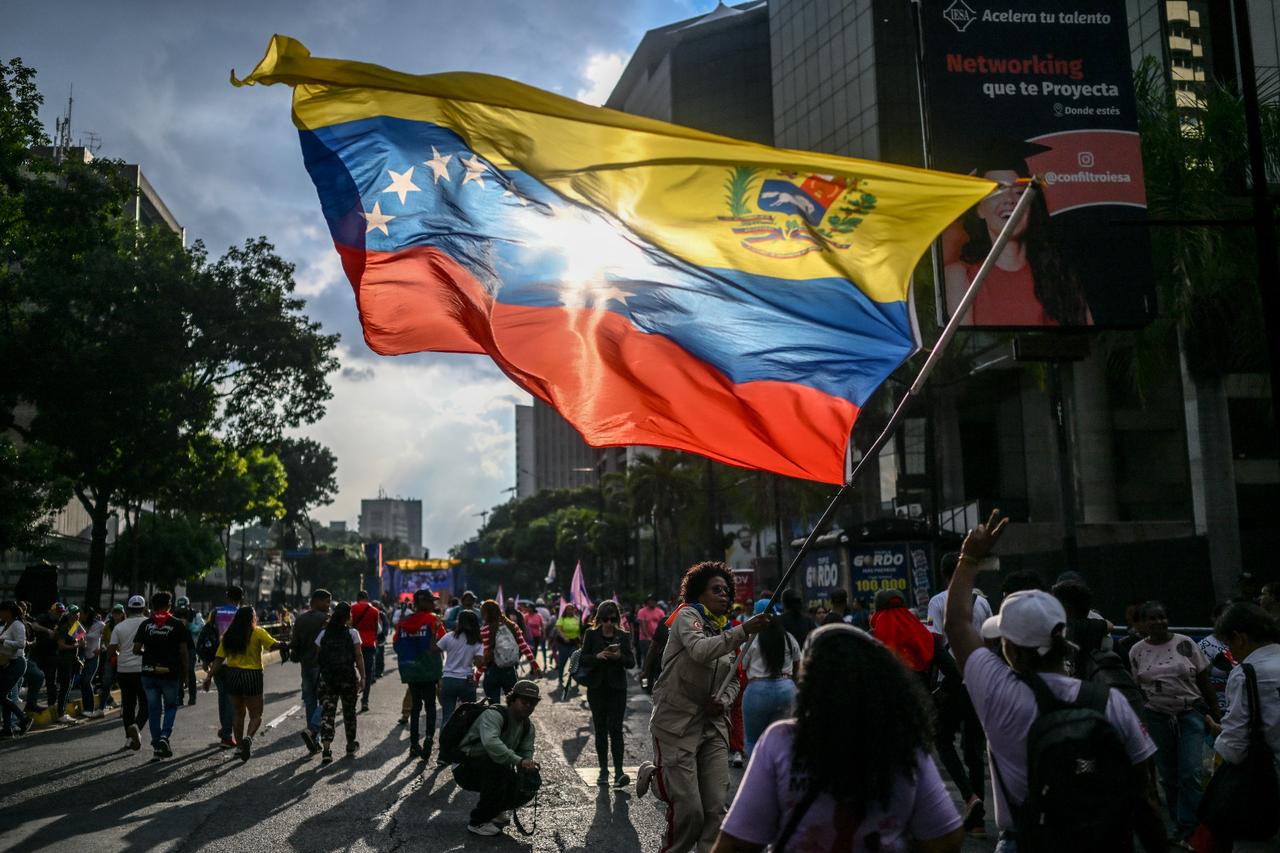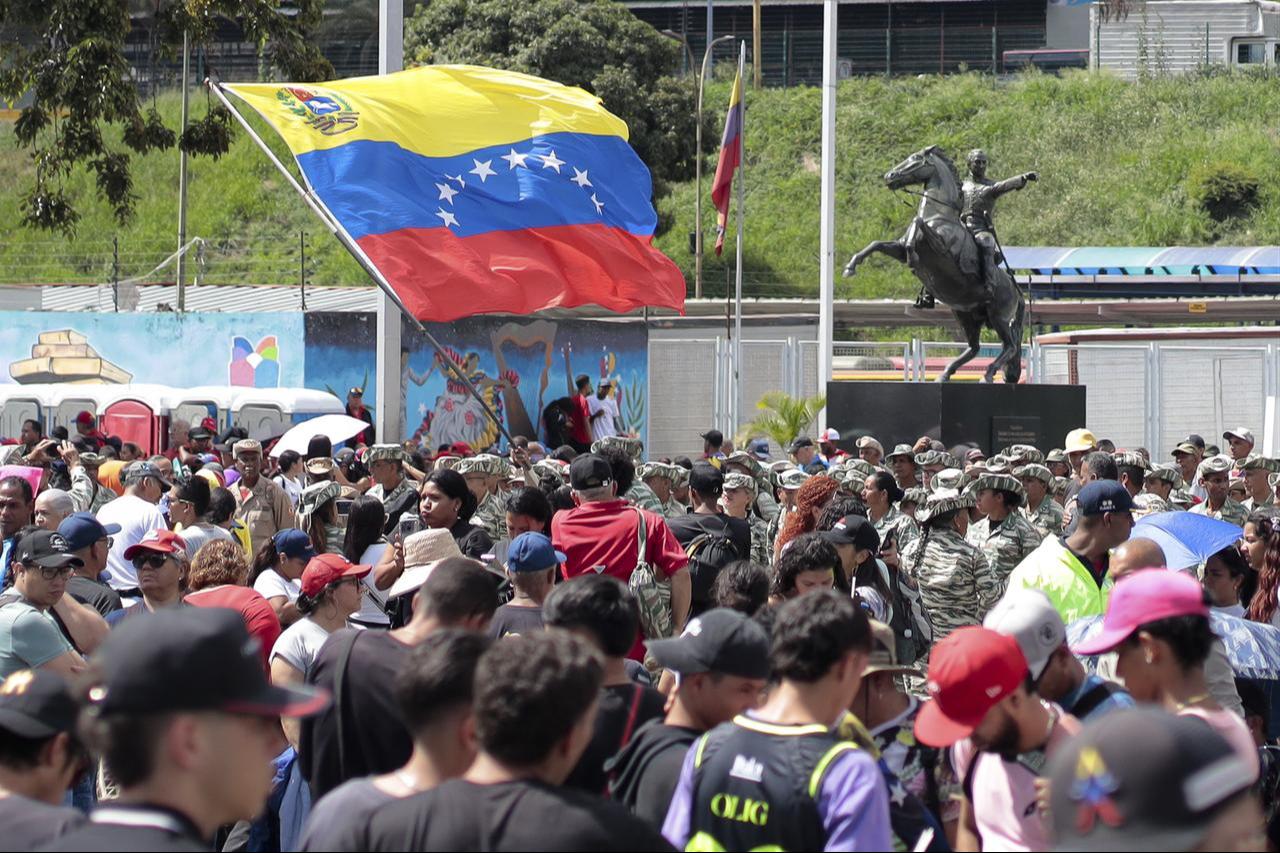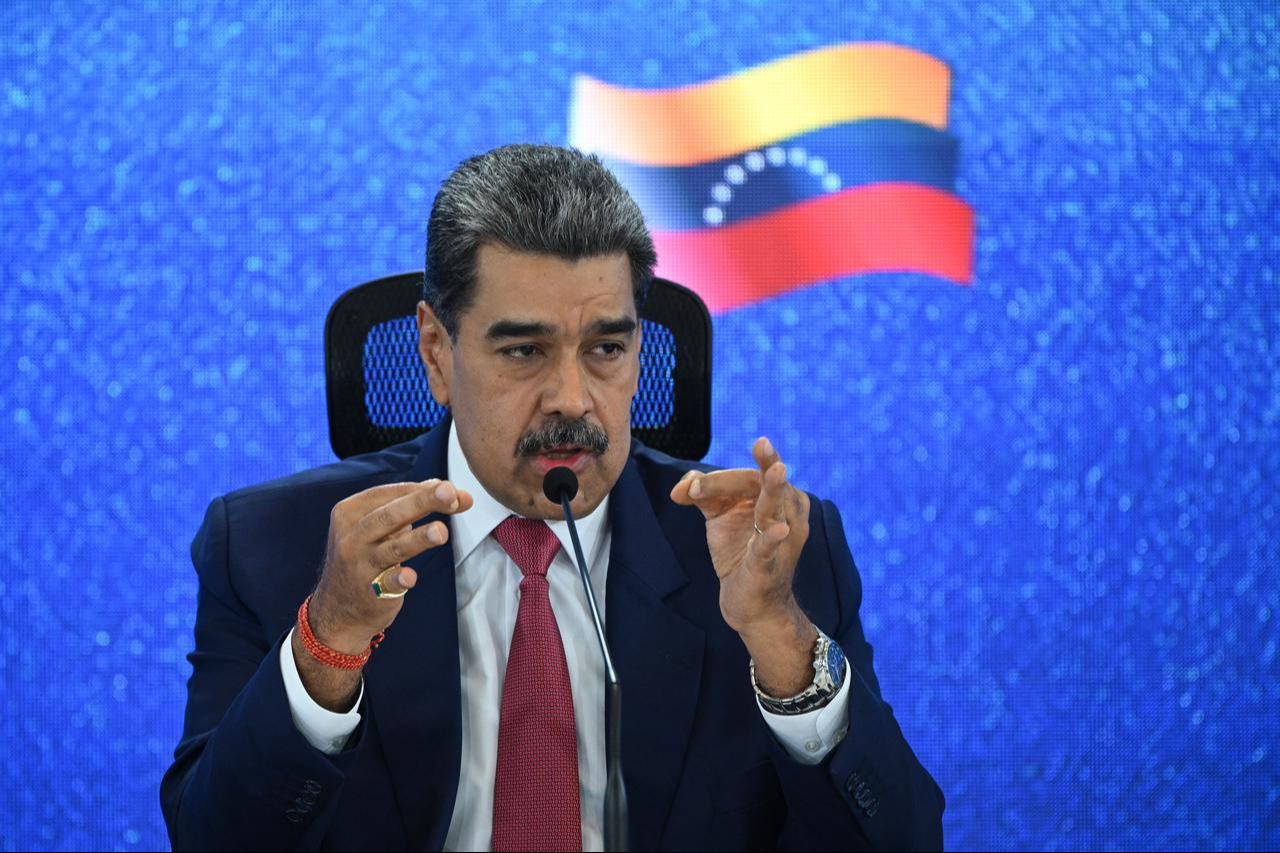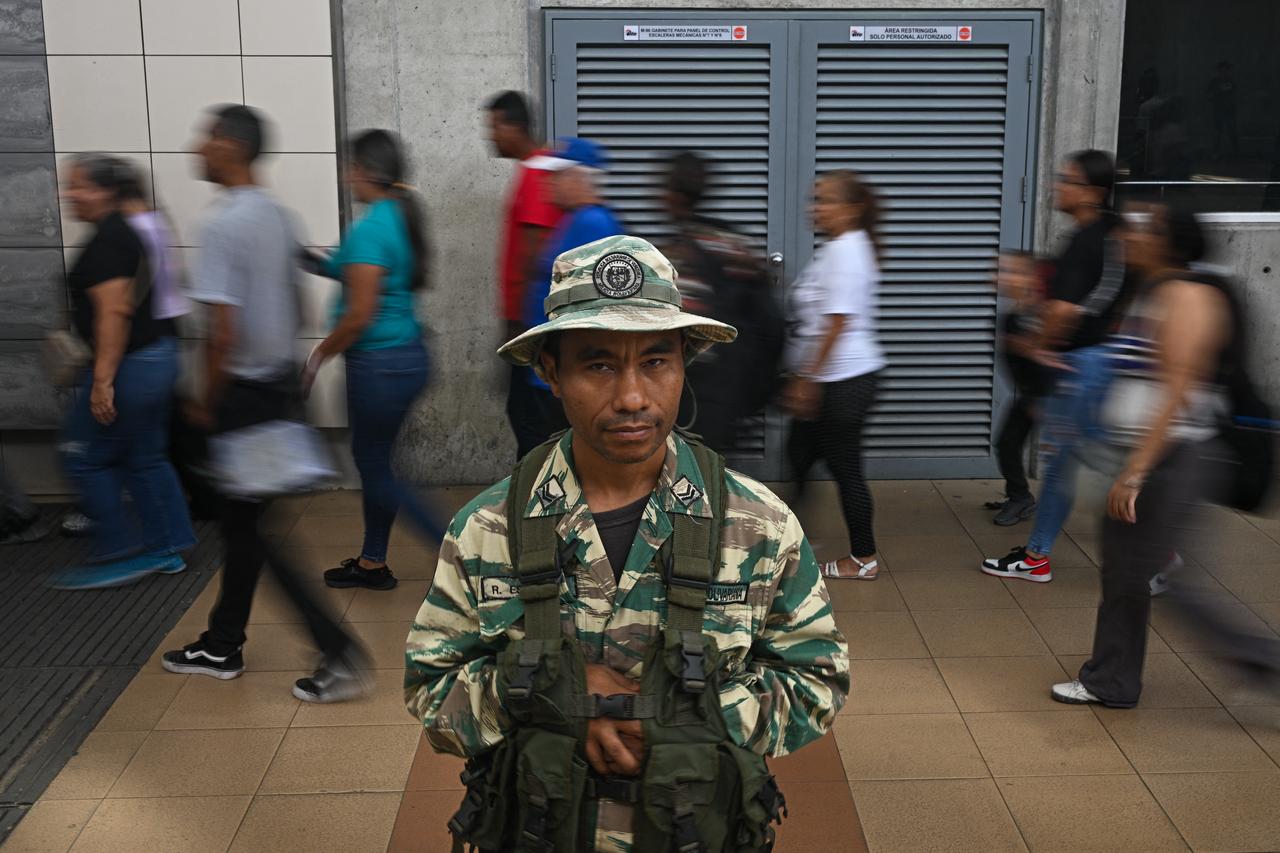
U.S. President Donald Trump ordered an end to diplomatic outreach with Venezuela and directed his special envoy to halt all talks with President Nicolas Maduro, the New York Times (NYT) reported Monday, citing U.S. officials familiar with the matter.
Trump told special envoy Richard Grenell to stop all diplomatic engagement, including direct talks with Maduro, according to the NYT.
The move follows growing frustration with Maduro's refusal to accede to American demands to give up power voluntarily and Venezuelan officials' continued insistence they have no part in drug trafficking, U.S. officials said.
U.S. officials said the Trump administration has developed several military contingency plans for potential escalation, including options aimed at removing Maduro from power.

Maduro criticized U.S. military activities in the Caribbean on Friday, accusing Washington of planning to impose a "puppet government" in his country.
"Venezuela will never humiliate itself before any empire, regardless of its power or name," Maduro said at an event in Caracas, adding the country "will be taught, in proper measure, a moral, ethical and political lesson in the years to come."
Maduro called U.S. actions in the region "an armed aggression to impose regime change, to impose puppet governments and to steal Venezuela's oil, gas, gold and all natural resources."
He ordered the mobilization of reservists and militias "if it is necessary to move from unarmed combat to armed combat."
Venezuela lodged a complaint with the U.N. Security Council over what it called an "illegal airspace incursion" by U.S. warplanes 75 kilometers (46.6 miles) off its coast.

U.S. Defense Secretary Pete Hegseth said Friday the U.S. carried out another strike to target "a narco-trafficking vessel" off the coast of Venezuela.
"Four male narco-terrorists aboard the vessel were killed in the strike, and no U.S. forces were harmed in the operation," Hegseth said on X.
The strike marked the fourth the US has carried out in recent weeks, targeting vessels allegedly carrying illegal drugs.
U.S. actions targeting vessels off Venezuela's coast on "drug trafficking" grounds have drawn criticism from both the Venezuelan government and the international community, with critics arguing the strikes violate international law.
President Nicolas Maduro said Monday that Venezuela foiled a false flag operation by what he called local terrorists to plant explosives at the U.S. embassy in Caracas and exacerbate a dispute between the two countries over drug trafficking.
Speaking on his weekly TV program, Maduro said two sources, which he did not name, "agreed on the possibility that a local terrorist group placed an explosive device at the U.S. embassy in Caracas" to aggravate the dispute with Washington.
Jorge Rodriguez, head of Venezuela's delegation for dialogue with its arch-foe, said earlier that Caracas had warned Washington of "a serious threat" from alleged extremists who "attempted to plant lethal explosives at the U.S. embassy."
"We have reinforced security measures at this diplomatic mission," added Rodriguez.

Trump signed an executive order authorizing increased and more effective use of the military to combat South American drug cartels on the ground.
Hegseth said the U.S. military is prepared for operations in Venezuela, including regime change.
The U.S. is seeking a $50 million reward for Maduro's arrest, accusing him of links to drug trafficking and criminal groups.
The government announced Aug. 8 it had increased the reward from $25 million to $50 million for information leading to Maduro's arrest or conviction.
Tensions between the Trump administration and Maduro have escalated after the U.S. deployed a naval group to the southern Caribbean.
The U.S. claims the force is there to combat criminal cartels and drug trafficking.
Maduro has repeatedly said the U.S. is seeking to overthrow his government.